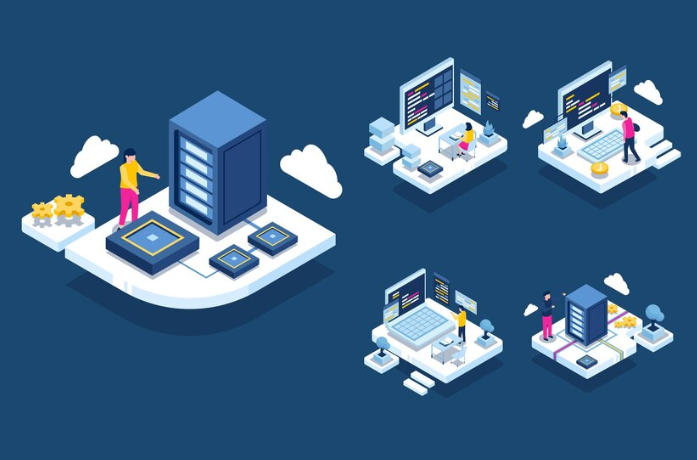What Are the Challenges and Solutions for Privacy and Security in Decentralized Applications?
 Olivia Anne
Olivia Anne
Introduction: privacy and security problems in dApps
Balancing the promise of decentralization with the correct amount of privacy and security on decentralized applications is a challenge quite high in the dApps domain. How would developers protect sensitive information without losing the transparency of blockchain technology? With the financial sectors, healthcare, and many more moving into the sector and dealing increasingly with dApps, understanding these issues is essential. The article details the intricacy of privacy and security in dApps, the hurdles that come along with them, and the innovations taking place to solve those challenges.
Understanding Privacy and Security in dApps
What Makes dApp Security Different?
dApps are blockchain-based technologies, the most transparent and immutable ever designed. In this respect, blockchains are not only good for creating an impenetrable ledger but may also inadvertently make data more publicly available than in traditional applications. With a public ledger where every transaction is visible, it's great to think of many ways that could undermine users' privacy if dApps are not balanced.
The Privacy Challenge
The core issue in dApp privacy is the protection of privacy during the gaining of benefits from decentralization. In decentralized systems, all parties may have equal access to information, and there's an issue as to how personal data is processed. For example, a dApp that develops patient records on the blockchain has the data made accessible to only certain people.
Security Issues in dApps
- Smart Contract Vulnerabilities
It is one of the significant constituents that build many dApps, and thus, they automate processes and transactions. However, they are prone to risks. Bugs or vulnerabilities in a smart contract can be exploited, resulting in financial or data breaches. The most common example could be the DAO hack in 2016, where a big loss in funds was caused due to a vulnerability in a smart contract.
- Network Attacks
Decentralized networks are highly susceptible to Distributed Denial of Service attacks and Sybil attacks, as well as 51% attacks. For instance, DDoS attacks can send too many requests to the network and even shut down services while exposing data.
Ground-Breaking Innovations in Privacy and Security
- Advanced Encryption Strategies
Advanced encryption techniques are proving effective for the enhancement of privacy levels in dApps. Two technologies that add value to data privacy include Zero-Knowledge Proofs (ZKPs) and homomorphic encryption. ZKPs enable a party to prove the validity of a statement without revealing the actual data, while homomorphic encryption facilitates computations on encrypted data without decryption.
- Privacy-Preserving Protocols
PEC and MPC are emerging as the impending necessity of the dApp ecosystem since they enable the handling of data processing and analysis without compromising the confidentiality of the data. For example, MPC would allow multiple parties to jointly apply a function over some inputs while keeping those inputs private.
- Strong Smart Contract Auditing
These smart contract audits are necessary and can be regular as they would be able to discover the errors in the codes, which later may be used for exploitation. Automated tools and third-party audit services have also emerged that check the security levels of smart contracts, therefore preventing many such issues before it is too late. As Benjamin Franklin succinctly put it, "An ounce of prevention is worth a pound of cure," and so does smart contract security.
- Decentralized Identity Solutions
Other solutions are the decentralized identity options that help manage privacy within dApps. Decentralized identity solutions make use of blockchain technology to create a self-sovereign identity, that is, an identity owned by the individual and controlled by the user. The user's data is managed by the person and shared selectively, minimizing breaches of data and unauthorized access and giving users more control over information.
- Further Network Security Measures
To suppress diverse types of network attacks, dApp developers are becoming more arduous in the construction of more solid security features like novel forms of consensus algorithms and sophisticated forms of network monitoring tools. To give some examples, Proof-of-Stake (PoS) consensus mechanisms, which can be viewed as a more secure variant of the traditional Proof-of-Work (PoW), are now being researched and might eventually minimize 51% of attack risks.
With the development of the dApp ecosystem, privacy and security must not give way. It's a heavy burden, and the weight on one side is equaled on the other: the solutions to these issues are highly developed. Advanced encryption techniques, privacy-preserving protocols, rigorous audits of smart contracts, decentralized identity solutions, and network security measures are all building blocks that contribute to making a safer decentralized environment.
So how, if rights regarding privacy and security are quite challenging to enforce, do they maintain innovation? The answer is multifaceted advancement in the form of cutting-edge technologies, along with proactive measures. A dApp developer and/or user should be vigilant and adapt, embracing new solutions and refining existing security practices.
Conclusion: Navigating the Future of Privacy and Security in dApps Summary
Putting it all together, to be sure that dApps realize their full potential with no compromise on user trust, appropriate privacy and security concerns have to be addressed. Using the latest technological advancement and highly comprehensive security measures, we would be able to reach our needed and desired decentralized future which is also user-centric. For those viewing these complexities, interacting with dApp development services that have enough experience can give them the acquaintance in putting into their applications the robust features of privacy and security.
Subscribe to my newsletter
Read articles from Olivia Anne directly inside your inbox. Subscribe to the newsletter, and don't miss out.
Written by

Olivia Anne
Olivia Anne
I'm Olivia Anne, an IT professional at Blocktunix, a trailblazing tech company shaping the future of decentralized finance (DeFi) and digital ownership. With a knack for building scalable blockchain solutions and optimizing smart contracts.